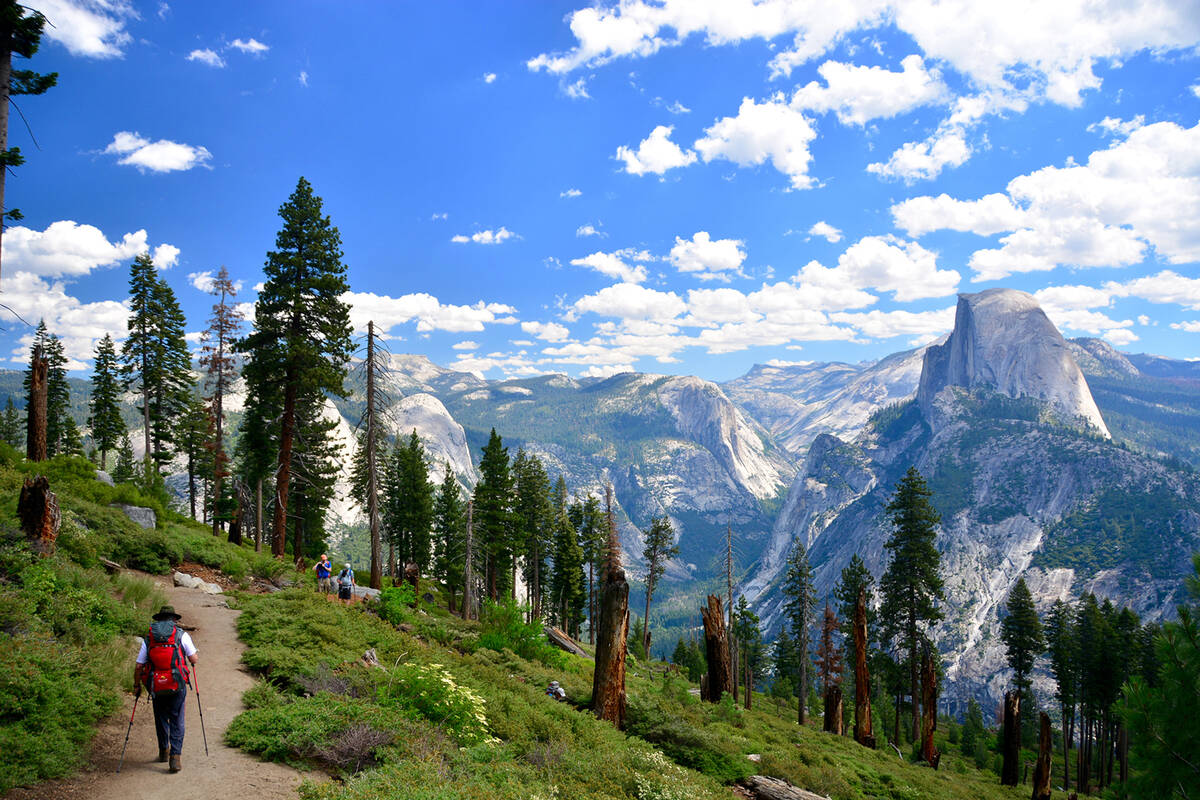No reservations needed for Yosemite day visits in 2023

Ending a requirement that has been in place for the past three years, Yosemite National Park won’t require people to make reservations next year for day visits to the famed Sierra landmark.
But next month, Yosemite officials will begin a planning process that could result in permanent reservation requirements for day-use visitors after 2024.
“The issue of congestion and gridlock have been issues for 30 or 40 years,” said Yosemite spokesman Scott Gediman. “The time is right to initiate this process and come up with a managed access plan. We’re hearing from visitors and the environmental groups that want to address this. It never had been addressed in a comprehensive plan. And we want to incorporate the tourism industry’s concerns.”
In 2020 and 2021, for the first time in the California park’s 157-year history, Yosemite officials limited the number of people who could visit the park due to concerns over the COVID pandemic.
This year, from March 23 to Sept. 30, reservations were required during peak hours — 6 a.m. and 4 p.m. — because there were at least half a dozen major construction projects underway, including work on the Tioga Road and Glacier Point Road, and parks officials were worried about gridlock.
But most of those construction projects are finished or nearing completion now.
Before COVID, up to 5 million people a year visited Yosemite, whose iconic landscape features massive granite walls, breathtaking mountain scenery, and towering waterfalls.
During the past three years, people with overnight reservations at hotels and campgrounds didn’t need to book an additional reservation to enter the park. But those interested in visiting for the day were required to make online reservations. Some people were turned away at the gates on days when all the reservations were filled.
In 2020, Yosemite kept visitor numbers to about 50% of historic averages during the first year of the pandemic. Over the past two years, visitation figures ranged from 50% to 80% of normal levels.
Gediman said that starting in January, the park will hold public meetings in person and online to solicit ideas about a permanent reservation system. Other national parks, including Rocky Mountain in Colorado and Arches in Utah, are holding similar planning efforts.
Environmental groups have generally supported limiting the number of people coming into America’s most popular national parks, particularly on peak summer days, to reduce traffic jams and overcrowding.
But tourism industry officials have resisted.
The reservation system has reduced hotel occupancy by 20% to 30% this summer in communities around Yosemite, said Jonathan Farrington, executive director of the Yosemite Mariposa County Tourism Bureau.
He said restaurants, hotels and other businesses will be pleased to hear that the park is not requiring reservations for 2023.
“We welcome the news,” he said. “It’s good that the reservation system won’t be in place next year. Because of worldwide economic issues, we don’t see travel rebounding to pre-pandemic levels next year.”
As for the discussion over permanent reservations, there are many issues to go over, he added. “Businesses would really like to contribute and participate in the conversation.”